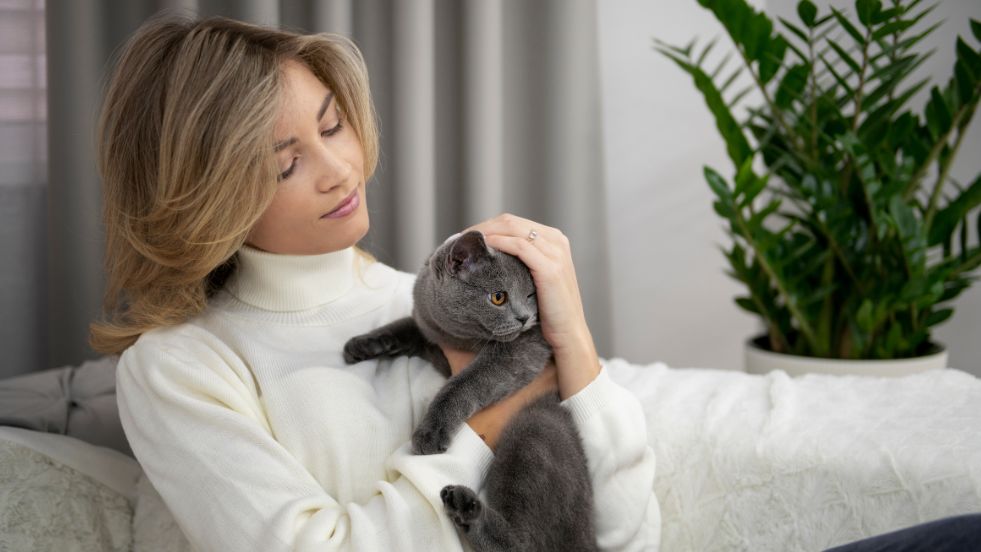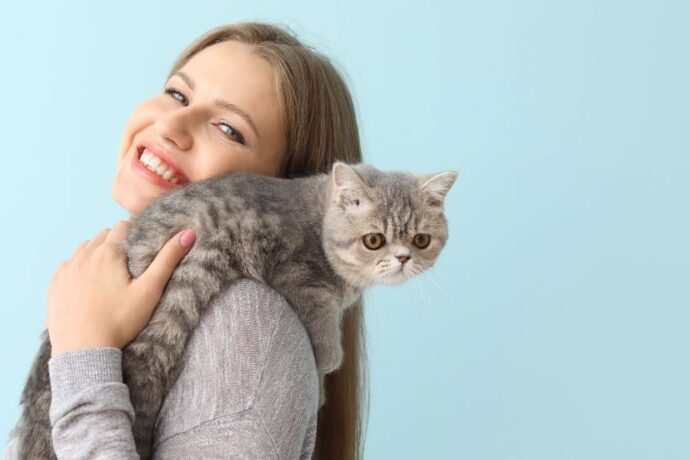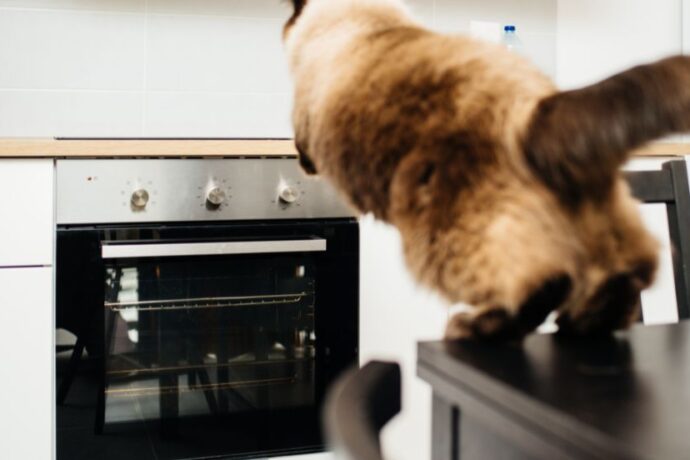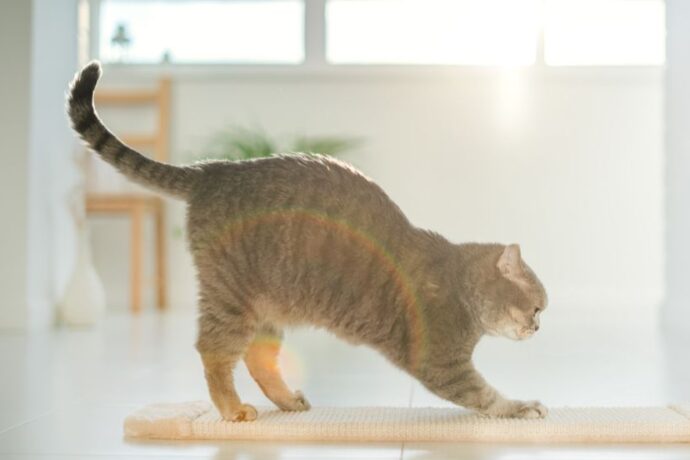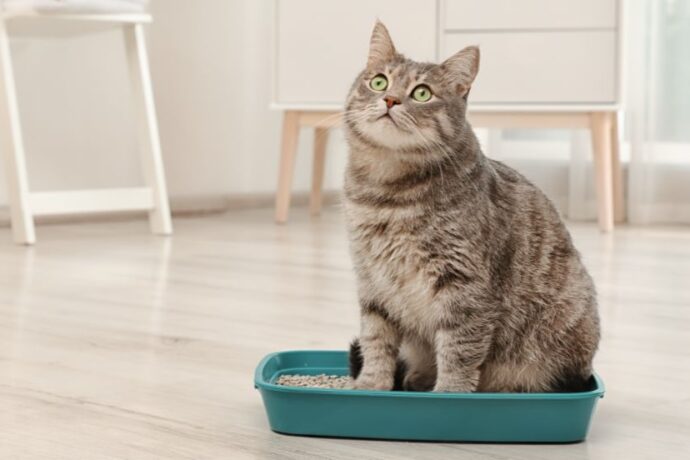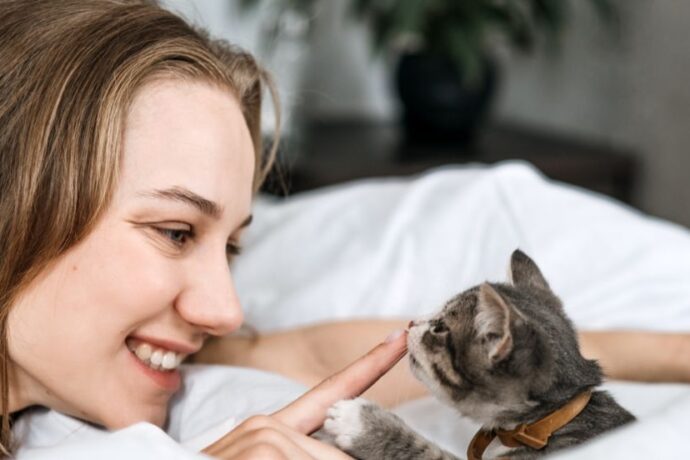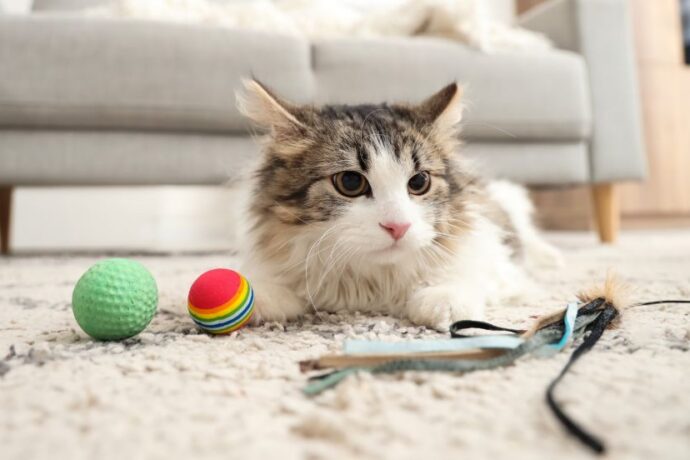Cats are famously skilled at hiding discomfort and illness. Unlike dogs, who may whine or show obvious distress, cats often mask their symptoms until the condition becomes advanced. This instinct comes from their wild ancestry, where appearing weak could make them vulnerable to predators. As a cat parent, it’s crucial to learn the subtle warning signs that indicate when something is wrong. Detecting illness early can make the difference between a simple treatment and a serious, life-threatening condition.
Subtle and Obvious Symptoms of a Sick Cat
When a cat is unwell, their behavior, appetite, and physical condition often change. Some symptoms are subtle, while others are more obvious. Here are key signs to watch for:
- Changes in appetite – A sudden decrease or increase in eating can signal illness. Loss of appetite may point to infections, dental disease, or internal organ issues.
- Weight loss or gain – Unexplained weight changes often suggest metabolic conditions like hyperthyroidism, diabetes, or kidney disease.
- Vomiting and diarrhea – Occasional hairball-related vomiting may be normal, but frequent vomiting or persistent diarrhea indicates gastrointestinal trouble.
- Changes in grooming habits – A sick cat may neglect grooming or over-groom in certain areas due to skin irritation or pain.
- Lethargy and withdrawal – If your once playful cat suddenly hides more, sleeps excessively, or shows little interest in interaction, it’s a red flag.
- Changes in litter box habits – Straining to urinate, frequent trips, blood in urine, or constipation are all serious symptoms that need immediate attention.
- Coughing or difficulty breathing – Respiratory issues can range from asthma to infections or even heart disease.
Quick-Reference Chart: Cat Symptoms and Possible Causes
| Symptom | Possible Causes | When to See a Vet |
| Loss of appetite | Dental disease, infection, kidney/liver issues | If lasting more than 24 hours |
| Sudden weight loss/gain | Diabetes, hyperthyroidism, metabolic disorders | Within a week or sooner |
| Excessive thirst/urination | Diabetes, kidney disease, thyroid problems | As soon as I noticed |
| Vomiting (frequent or severe) | GI infections, toxins, hairballs, and organ disease | Immediate if persistent or with blood |
| Vomiting (frequent or severe) | GI infections, toxins, hairballs, and organ disease | Immediate if persistent or with blood |
| Diarrhea | Parasites, infections, food intolerance | If lasting more than 1–2 days |
| Breathing difficulty/coughing | Asthma, heart disease, and respiratory infection | Emergency – see a vet immediately |
| Lethargy/hiding | Pain, infection, stress, chronic illness | If lasting more than 24 hours |
| Changes in litter box habits | Urinary tract infection, bladder stones, constipation | Immediate if straining or no urine |
| Poor grooming or a greasy coat | Arthritis, obesity, dental pain, systemic illness | Schedule a vet check-up |
| Bad breath/drooling | Dental disease, oral infection, systemic illness | Vet visit recommended |
How to Recognize When Your Cat Isn’t Feeling Well
Cats communicate illness through both body language and behavior. Look beyond physical symptoms to their daily routines. For example, a cat that suddenly avoids jumping onto furniture may be experiencing joint pain or arthritis. Likewise, a once-affectionate cat that becomes irritable could be hiding discomfort.
Veterinary experts recommend tracking changes in eating, drinking, activity, and litter box usage. The American Association of Feline Practitioners (AAFP) notes that even minor shifts in these patterns can point to underlying health problems (1). By paying attention, you can pick up on early signs that something isn’t right.
Common Health Issues That Make Cats Sick
Several conditions frequently affect cats, and knowing them can help you recognize warning signs faster:
- Kidney disease – Common in older cats, symptoms include increased thirst, frequent urination, weight loss, and poor coat condition.
- Diabetes – Marked by excessive drinking, frequent urination, and sudden weight loss despite a good appetite.
- Hyperthyroidism – Cats with this condition often eat more but lose weight rapidly.
- Urinary tract infections (UTIs) – Cats may strain, cry when urinating, or use inappropriate places outside the litter box.
- Dental disease – Bad breath, drooling, or refusal to eat dry food can signal oral infections.
- Upper respiratory infections – Sneezing, nasal discharge, watery eyes, and lethargy are common signs.
What to Do If You Suspect Your Cat Is Ill
If your cat shows any of the above warning signs, don’t wait and see. Cats can decline quickly once illness sets in. Here’s what to do:
- Monitor carefully – Track symptoms, frequency, and duration. Keeping a log helps your vet understand the pattern.
- Contact your veterinarian – Any persistent change in appetite, weight, or litter box use warrants a vet visit. Emergencies like breathing difficulty, inability to urinate, or seizures require immediate care.
- Avoid home remedies without guidance – Cats are sensitive to many human medications and herbal treatments. Always consult your vet before giving anything.
- Provide comfort – Ensure fresh water, a clean litter box, and a quiet resting place. Sick cats often need extra warmth and reassurance.
What Research and Veterinary Science Say About Feline Illness
Scientific research underscores the importance of recognizing early warning signs. A 2018 study in the Journal of Feline Medicine and Surgery found that subtle behavior changes, such as reduced grooming or social withdrawal, often appear weeks before clinical symptoms (2)(3). Another veterinary review highlighted that chronic kidney disease in cats is often diagnosed late because owners miss early indicators like increased thirst and subtle weight loss (4).
By combining scientific understanding with close observation, cat owners can play a vital role in early detection and successful treatment.
Frequently Asked Questions
1. How can I tell if my cat’s vomiting is serious?
A. Occasional hairball-related vomiting can be normal. However, frequent vomiting, blood in vomit, or refusal to eat afterward requires veterinary attention.
2. Should I worry if my cat is drinking more water than usual?
A. Yes, excessive thirst can indicate kidney disease, diabetes, or thyroid problems. It’s best to have your vet run diagnostic tests.
3. Can stress make my cat look sick?
A. Absolutely. Stress can cause appetite loss, digestive upset, and even urinary problems. While stress may contribute, always rule out medical causes with your vet.
Final Thoughts:
Cats rely on us to notice when they’re unwell. Because they’re experts at hiding sickness, it’s essential to watch for changes in appetite, behavior, and daily habits. Early intervention not only improves recovery chances but also prevents minor health issues from becoming serious.
As a cat parent, staying observant, scheduling regular veterinary check-ups, and acting quickly when warning signs appear are the best ways to ensure your feline friend enjoys a long, healthy, and happy life.
References:

